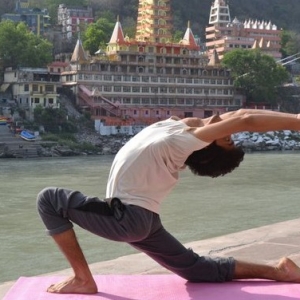Tucked into the foothills of the Himalayas where the Ganges flows with a steady, sacred rhythm, Rishikesh has long been synonymous with spiritual renewal, yoga, and Ayurvedic healing. In recent years, it has also become a top choice for detox retreats — programs that combine ancient healing systems, mindful movement, and simple living to help people clear physical toxins, reset patterns, and create calmer, healthier habits. If you’re considering a detox stay in Rishikesh, here’s a practical, no-fluff guide to what the best retreats offer, how they work, and how to choose the one that’ll get you the results you want.
What a detox retreat really is (and isn’t)
A detox retreat is more than a short-term cleanse or a trendy juice fast. The best programs take a holistic approach: they look at diet, digestion, sleep, stress, movement, emotional wellbeing, and the body’s natural detox pathways. While some retreats emphasize medically supervised cleanses or therapeutic fasting, many focus on Ayurvedic detox practices such as panchakarma, tailored cleanses, guided yoga, breathwork, and restorative therapies. The goal isn’t quick fixes but a safe, supported reset that leaves you returning home with sustainable habits.
Why Rishikesh makes sense for detox
Location matters. Rishikesh’s serene riverside setting, clean mountain air, and centuries-old tradition of yoga and Ayurveda make it ideal for deep, uninterrupted work on body and mind. The town attracts experienced teachers and Ayurvedic practitioners, which means high-quality treatments and a range of program styles — from rigorous therapeutic cleanses to gentler “rejuvenation” retreats. Beyond the therapies, the slower pace, temple bells, and opportunities for early-morning meditation help participants step out of everyday triggers and into a recovery-oriented routine.
Key features of the best detox retreats
When you’re comparing options, look for these non-negotiables:
Qualified medical and Ayurvedic supervision
The best retreats blend modern medical screening with classical Ayurvedic assessment. Practitioners should be credentialed and able to adapt protocols based on their health history. If you have chronic conditions or take medications, medical oversight is essential.
Individualized planning
A one-size-fits-all cleanse isn’t ideal. Top retreats begin with a consultation — asking about digestion, sleep, stress, medications, and goals — then tailor diet, therapies, and activity accordingly.
Balanced nutrition (not extreme deprivation)
Effective detox focuses on improving digestion and removing inflammatory foods rather than long-term starvation. Expect simple, nourishing meals: kitchari or wholesome grain-and-lentil dishes, spiced broths, herbal teas, and easy-to-digest preparations that support cleansing without weakening you.
Authentic Ayurvedic therapies
Panchakarma elements (like abhyanga oil massage, shirodhara, and gentle basti or herbal enemas when appropriate) are commonly used. Therapies should be applied by trained therapists who understand contraindications and can modify sessions to your comfort.
Restorative movement and breathwork
Daily yoga tailored to your energy level, pranayama (breathing exercises), and guided meditation are integral. These help move stagnation, reduce stress hormones, and support emotional release.
Clean, tranquil accommodations
The environment should support rest: comfortable bedding, quiet spaces, light-filled rooms, and easy access to nature. Retreats in quieter neighborhoods or on riverbanks offer better conditions than those in the busy market areas.
Education and aftercare
The best retreats teach you how to maintain benefits: meal planning, short at-home practices, and realistic guidelines for reintroducing foods. Look for programs that include follow-up support, even simple email check-ins.
A sample day (what to expect)
A typical detox day in Rishikesh is structured and gentle. You might rise before sunrise, spend 30–60 minutes in guided meditation and breathwork, follow with a light therapeutic yoga session, and then have a nourishing breakfast like spiced porridge or kitchari. Midday could include an Ayurvedic therapy (massage or shirodhara), herbal tea, a workshop on digestion, and a light, supportive lunch. Afternoons are usually for rest or one-on-one consultations. Evenings might include restorative yoga or a talk on sleep hygiene before an early, simple dinner and quiet time.
Who benefits most, and who should be cautious
Detox retreats can benefit people who want to break unhealthy cycles — poor sleep, chronic low-grade inflammation, digestive issues, or stress-related patterns. They’re also valuable for those seeking mental clarity and a reset after burnout.
However, they’re not suitable for everyone. Pregnant or breastfeeding people, those with uncontrolled medical illnesses, severe eating disorders, or certain cardiovascular conditions should avoid intense cleanses unless cleared and supervised by appropriate medical professionals. Always be transparent about medications and medical history.
How to choose the right retreat
Start with your goal. Are you looking for therapeutic detox, stress reduction, or a gentle reset? Read program descriptions carefully; check practitioner credentials and whether a medical screening is mandatory. Ask about daily schedules, food, lodging standards, and cancellation policies. If possible, request references or read recent participant reviews — consistent praise for hygiene, practitioner empathy, and safe practices is a good sign.
Practical tips before you go
Prepare mentally and physically: Reduce alcohol, heavy processed foods, and stimulants at least a week before arrival to minimize withdrawal symptoms.
Pack simply: Comfortable clothes, a refillable water bottle, basic toiletries, and any necessary medications.
Manage expectations: A retreat kickstarts change, but long-term benefits depend on following post-retreat guidance and gradually integrating new habits.
Budget for extras: Some therapies, private sessions, or transport may cost more than the base package.
Final thoughts
A detox retreat in Rishikesh can be a transformative experience when chosen thoughtfully. The right program combines qualified care, individualized planning, authentic Ayurvedic therapies, and a peaceful setting that helps you slow down and listen to your body. Think of it as a structured pause — a chance to recalibrate digestion, reset daily rhythms, and learn practical tools to carry home. If your goal is sustainable wellbeing rather than a quick overhaul, a well-run Rishikesh detox retreat offers both the environment and the expertise to make that change lasting.








